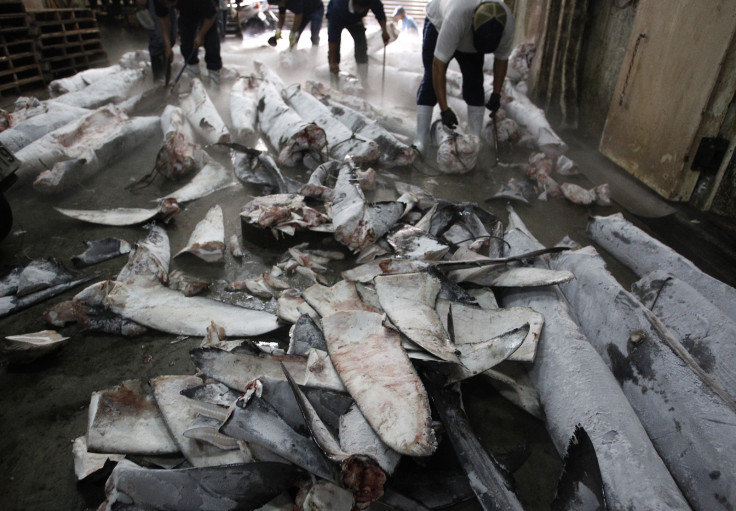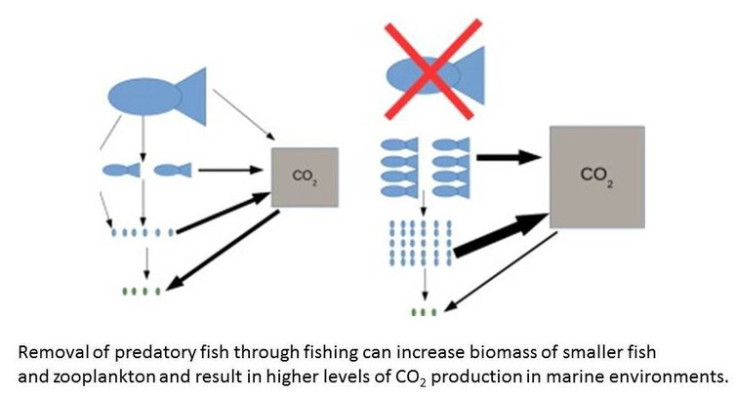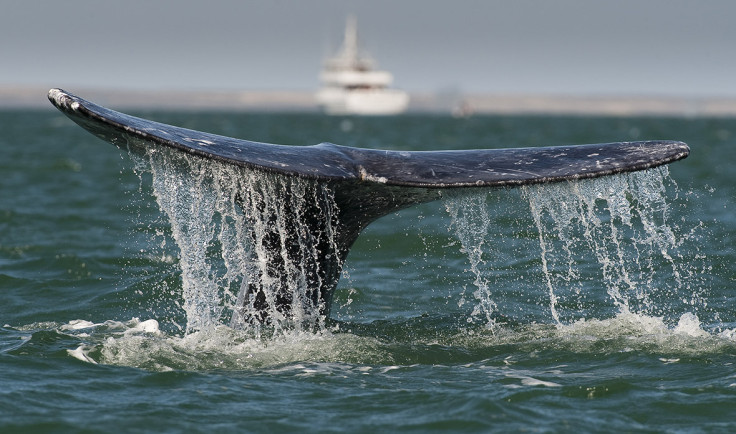Shark finning is not just cruel, it's increasing the pace of climate change
Removing predators from the ocean will vastly increase CO2 production.

Rick Stafford, Bournemouth University
Our oceans are under serious threat. For years, many commercially important fish have been unsustainably caught, and today many of the world's commercial fisheries are on the verge of collapse.
In addition, over the past 20 years, the demand in the Far East for shark fins to make soup, has annihilated shark populations – although recent work suggested that demand for fins has finally begun to fall.
Predictions for the future health of the oceans are alarming. Several studies foresee that the majority of the ocean will be occupied by little more than a combination of jellyfish and plastic waste.
While scientists have long been aware of the decline of marine ecological communities, little work has been done on how fishing or shark finning can affect ecosystem level processes, including climate change. Our new study shows how large-scale ecosystem effects can occur as a result of predator removal, including increased production of biological carbon dioxide in the ocean.
Since most commercially caught fish are predators, fishing and shark finning are resulting in a rapidly decreasing number of predators in the marine ecosystem. Our research suggests that this removal of predators is likely to lead to a increase in ocean ecosystems' CO<sub>2 production, and ultimately that fishing and shark finning are contributing to climate change.

The reason for this increase in carbon dioxide production is based on a simple and well-founded ecological principle taught to biology students in schools, that energy and biomass are not efficiently transferred through the food chain. Typically, a predator population will only gain 10% of the biomass of the prey it consumes.
Predators have the potential to reduce the biomass of prey species such as small fish and zooplankton (small animals in the water column). Removing the predators, therefore, can result in a large increase in these low level populations – in fact, due to inefficient energy transfer, this increase could be up to 90% more in terms of biomass than the weight of the predators removed. This results in more respiration occurring, and therefore more carbon dioxide production.
While our study is based on a theoretical model, studies on the role of predators in carbon production have been conducted before, in simple systems consisting of only a few species. They also showed that carbon production can be increased by removing top predators from the system.
More recent work has also demonstrated how predators can affect the feeding habits of prey species and how this can result in reductions in the subsequent storage of carbon in marine ecosystems, such as salt marshes. This occurs because predators can control populations or behaviour of other animals, which might prevent the build up of carbon deposits, for example, by disturbing or digging up the sediment, and releasing organic material back into the water column.
Green whales
There are also studies that demonstrate the potential role of whales in climate change, by providing nutrients for phytoplankton – the "plants" of the sea – to grow, and therefore absorb carbon dioxide. Whales achieve this by transporting essential sources of iron across layers of water that don't otherwise mix, by feeding at depth and defecating at the surface. This allows iron and other nutrients to come to the surface waters where phytoplankton live – and more phytoplankton means less carbon dioxide. And so by reducing whale populations, we risk increasing carbon dioxide levels, too.

It is important to recognise the negative effects that abuses of ocean ecosystems are having, and to begin to realise that the potential consequences are far more far reaching than just running out of fish to eat. Despite the recent reduction in demand for shark fin soup, shark finning is still continuing at a very high level in many areas of the world, and continues to impact severely shark populations. Even sustainable fishing practices involve a reduction of fish stocks – typically to half of their natural size – and could have a major impact on ocean carbon production.
But there are positives from our research, too. Allowing numbers of predatory fish, sharks, whales and other marine animals to increase would likely lead to a decrease (from current levels) of carbon production in the ocean. Creating sustainable fisheries (as a first step), maintaining the ban on commercial whaling and outlawing – and enforcing existing bans on – shark finning will have a two-fold positive effect.
Not only will numbers of these large, beautiful and enigmatic creatures increase, but the amount of carbon dioxide entering the oceans and ultimately the atmosphere will also be reduced.
Rick Stafford, Marine Biologist, Bournemouth University
This article was originally published on The Conversation. Read the original article.
© Copyright IBTimes 2025. All rights reserved.





















